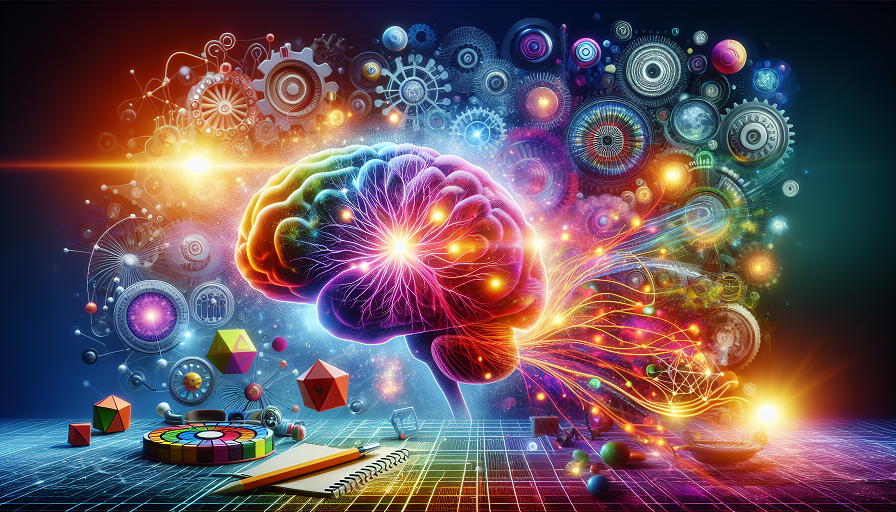
Whether it’s stamps, action figures, rare coins, or seashells, the act of collecting and categorizing is more than a hobby—it’s a workout for your brain. Sorting, organizing, and assigning meaning to items exercises memory, attention to detail, and problem-solving skills. It’s a practice that taps into human curiosity and our innate desire to make sense of the world, all while boosting cognitive health.
Contents
The Psychological Appeal of Collecting
Collecting fulfills a range of psychological needs, from the joy of discovery to the satisfaction of creating order. This process engages the brain in ways that encourage focus, emotional regulation, and creative thinking.
The Thrill of the Hunt
Searching for a rare item activates the brain’s reward system. Dopamine, the “feel-good” neurotransmitter, surges when you find that missing piece for your collection. This excitement fosters motivation and keeps your brain engaged.
Creating Order in Chaos
Categorizing a collection is like solving a puzzle—where does each piece fit? This process satisfies the brain’s desire for structure and organization, promoting logical thinking and a sense of accomplishment.
Fostering Emotional Connection
Many collections are tied to personal history or interests. This emotional connection strengthens memory and provides a comforting sense of continuity, especially during times of stress or change.
Cognitive Skills Enhanced by Collecting and Categorizing
The mental processes involved in collecting and categorizing go beyond enjoyment. They actively enhance cognitive skills that are critical for everyday tasks and lifelong learning.
Boosting Memory
Remembering details about individual items—where you found them, their value, or their significance—exercises both short-term and long-term memory. This constant recall strengthens neural pathways and improves overall memory retention.
Sharpening Attention to Detail
Spotting a rare item or identifying subtle differences in similar objects hones your observational skills. This attention to detail is transferable to work, study, and even social interactions.
Improving Categorization Skills
Deciding how to group and organize your collection builds cognitive flexibility and critical thinking. Do you sort coins by year, country, or material? These mental exercises train your brain to think logically and creatively.
The Problem-Solving Power of Categorization
Categorization isn’t just about neatness—it’s a problem-solving exercise that challenges your brain to recognize patterns, establish hierarchies, and make decisions.
Recognizing Patterns
Grouping items by shared characteristics trains your brain to recognize patterns and connections. This skill enhances your ability to analyze complex information and spot trends in other areas of life.
Establishing Systems
Creating a system to organize your collection requires strategic thinking. You’re effectively designing a framework that can be expanded or adjusted as your collection grows—a practice that strengthens planning and adaptability.
Testing and Refining Strategies
As your collection evolves, you might refine your organizational methods. This iterative process encourages experimentation and problem-solving, keeping your brain engaged and adaptable.
The Social and Emotional Benefits of Collecting
Collecting and categorizing are often social activities that foster connection and communication. These emotional benefits further contribute to cognitive resilience and well-being.
Sharing Knowledge
Collectors often share their expertise with others, whether through conversations, forums, or exhibitions. Teaching others about your collection reinforces your own knowledge while building social bonds.
Joining Communities
Collecting often connects you with like-minded individuals. These social interactions stimulate your brain and provide opportunities for collaborative learning and problem-solving.
Reducing Stress
The focused, repetitive nature of organizing a collection can be meditative, reducing stress and promoting a sense of calm. This mental clarity enhances overall cognitive function.
Practical Tips for Starting or Expanding a Collection
If you’re interested in exploring the cognitive benefits of collecting, here are some tips to get started or take your hobby to the next level.
- Choose a Theme: Select a subject that excites you, whether it’s vintage toys, nature specimens, or cultural artifacts.
- Set Goals: Decide what you hope to achieve with your collection, such as completing a set or learning about a specific topic.
- Organize Your Space: Create a dedicated area to store and display your collection, making it easy to access and enjoy.
- Research and Learn: Dive into books, online resources, or local experts to deepen your knowledge about your chosen items.
- Document Your Collection: Keep detailed records of each item, including its origin, condition, and significance.
Pairing Collecting with Brain Supplements
To maximize the mental benefits of collecting, consider complementing your hobby with nootropics. These brain supplements can enhance focus, memory, and cognitive flexibility, making the act of organizing and analyzing even more rewarding.
The Enduring Value of Collecting and Categorizing
Collecting and categorizing aren’t just hobbies—they’re exercises in cognitive growth, emotional connection, and lifelong learning. By engaging with your collection, you’re strengthening your brain’s ability to remember, organize, and adapt. So, whether you’re curating stamps or cataloging fossils, remember that each item represents not just a piece of your collection, but also a step toward a sharper, more resilient mind.

